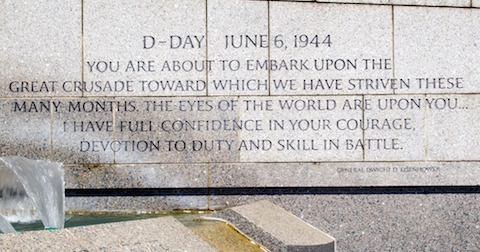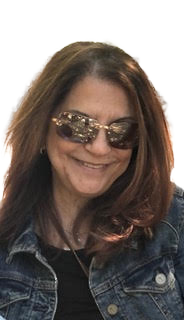
Like a lead Tomb
PUBLISHED BY: CAMBRIDGE PRESS, 2011 Journal of Palliative and Supportive Care
When my father was in hospice for half an hour, he must have had a very strong premonition; more than an epiphany, a surge that if he didn’t do something, something really outside his box, no good was going to come of this. So, as the hospice nurse placed the third morphine patch on his arm, and poured some concoction under his tongue, with no relief to his pain, he looked up at me, his heartbroken daughter, his eyes cloudy and moist, then turned growling to his wife, my utterly overwhelmed mother, and whispered, the droopy globes in his head directed toward the nurse, “Get this crazy woman off of me. She’s going to kill me. I want to go to the hospital.”
Fortunately, my husband, a physician on staff at the hospital where my father had recently been discharged after receiving radiation treatment for metastatic prostate cancer, was at home, where my parents had been staying, and heeded my father’s plea. He lifted my dad from the chair he was curled in, loaded him into our car, and got him readmitted to the hospital.
Understand, placing my father in hospice was not an easy decision, and was not made single mindedly. Therewere at least five doctors consulted, myself, my older brother, oncology nurses, social workers, our rabbi, and last but not least my mom, who disapproved of the whole concept from the bitter moment she put pen to consent paper. My parents have been arried for sixty-five years. They met before the big one, WWII.
The only person we did not consult was—you guessed it—dear 88-year-old-dad. But after all, in our defense, he was so, so—did I not make it clear enough?— so very, very sick. The pain, the vomiting, the absolute, unequivocal distress. We could not take it!
It all started a month earlier with sudden onset back and hip pain. After only a few tests, the diagnosis was confirmed that his 10-year-old stagnant prostate cancer had at last spread to his spine and hip and would require ten radiation treatments and ongoing Lupron injections. Once complete, he would be fine and in remission. Uh huh.
We were not forewarned that the radiation to his spine would be shot through his chest, burning his esophagus, so that after his treatment was complete, he would not be able to swallow. Because of some preexisting comorbid medical conditions that compromised his life, other means of feeding was not safely feasible. My mother and I tried every which way to get him to eat anything and ignore the pain, but every day only brought more frustration and, oddly, more tales of childhood suffering and comrades in arms during the war in Belgium and Germany who were cold, hungry, prisoners, and were killed. The fervidness of these stories could have humiliated Frank McCourt for his carefree childhood. Dad had morbid dreams day and night, and suffered panic attacks and all-consuming anxiety about what would happen to the prisoners during the winter months without blankets while they were sleeping on the dirt floors.
Without nutrition, in addition to the residual pain of his cancer and the ache of emptiness, there comes the weakness that carries with it the inability to care for oneself, the hospital dependency, the opiate pain medicines, the hallucinations, then the hospital psychosis, the anti-psychotic medicines, the constant sleep, more weight loss, and before we knew it, my father was dying and my family insisted on bringing him home to do so.
For the week he stayed in my house, before hospice was called in, I heard every war story he could remember and couldn’t tell me about during all the years I grew up in our home. He told me why he still got panic attacks nd where he was when he had his first. He was taking the BMT Canarsie subway line back home from work. The train screeched to a stop and the sound seemed the same as the sound of the coyotes in Germany that my father and his comrades would hear in the night, warning them of oncoming trouble. The men would jump deep into their foxholes, not knowing if the howls were coming from 50 yards or 5 miles away, and the soldiers, cared, not shitless scared, Dad said, but scared “like a lead tomb was lying on your chest” scared. By the time the train got moving toward home again, he couldn’t breathe.
When it became clear to my mother that visiting nurses, our love and support, and all the king’s horses and all the king’s men, weren’t saving this man, the family, after a tumultuous week of plumping pillows and begging Dad to sip Ensure, all convinced my mother to sign the paper that, “was going to kill him.” She just knew he would live if we gave him more time. We just knew he wouldn’t and he had to be made comfortable. We all begged
her and she succumbed. All we asked dad was, “Do you want to live like this?” Was that enough to ask?
They did more for him whenwe got him back to the hospital. Taking chances with the comorbid ailments (what was there to lose?) they pushed the IV nutrients and risked his kidney function, added some steroids to perk up his appetite and energy, tossed in an anti-psychotic/anti-depressant, and behold, some Maalox for his esophagus. In 2 weeks he was eating all the hospital food and doing laps around the floor with the physical therapist.
I took him back to my house with my mom to start the recuperation again. I wonder if that nurse would have “killed” him. He does not even know he was in hospice for half an hour. I think the question we should have asked him was, “Are you ready to die?” It has been 3 months now. The VA has offered him a lifetime home health aide.


